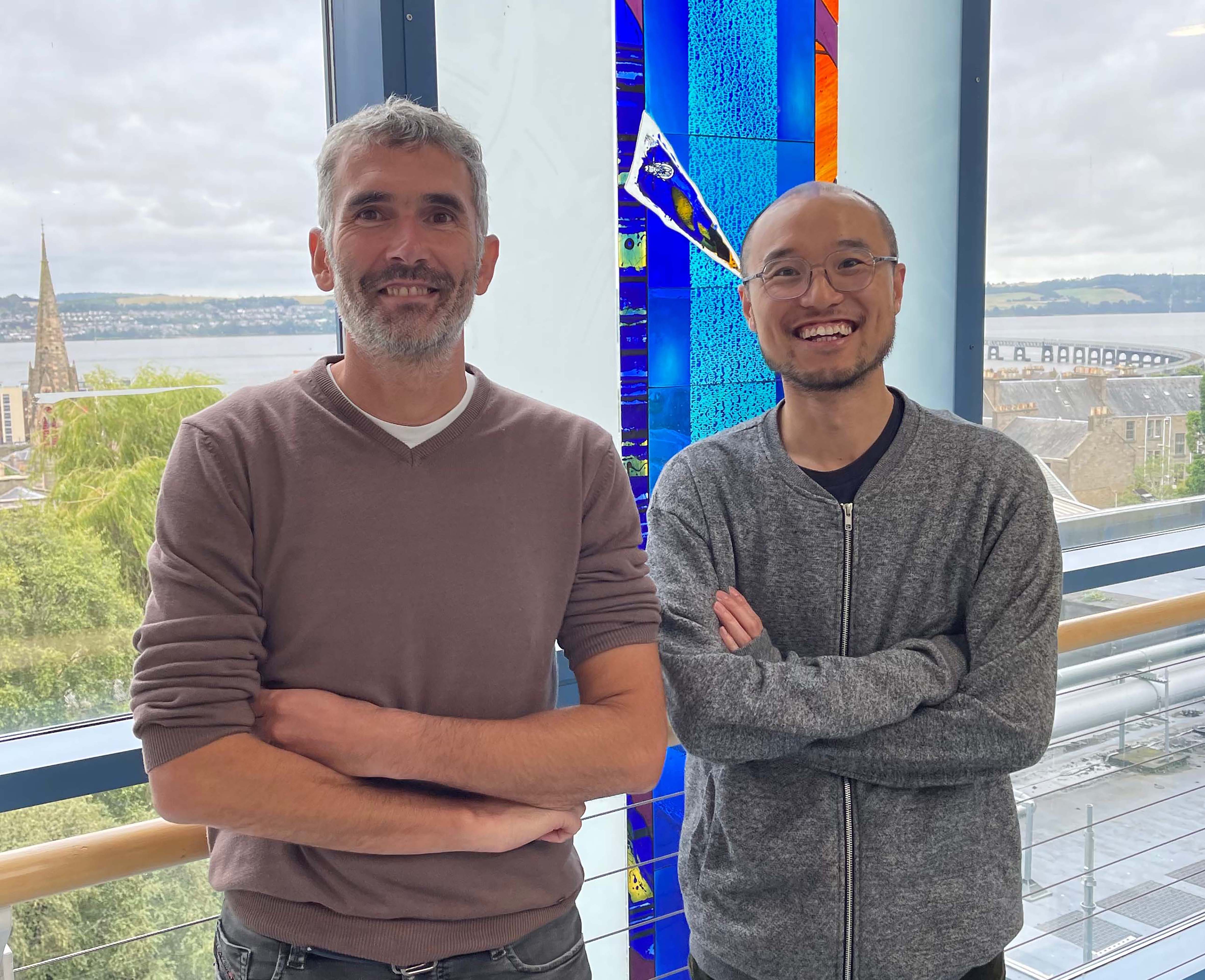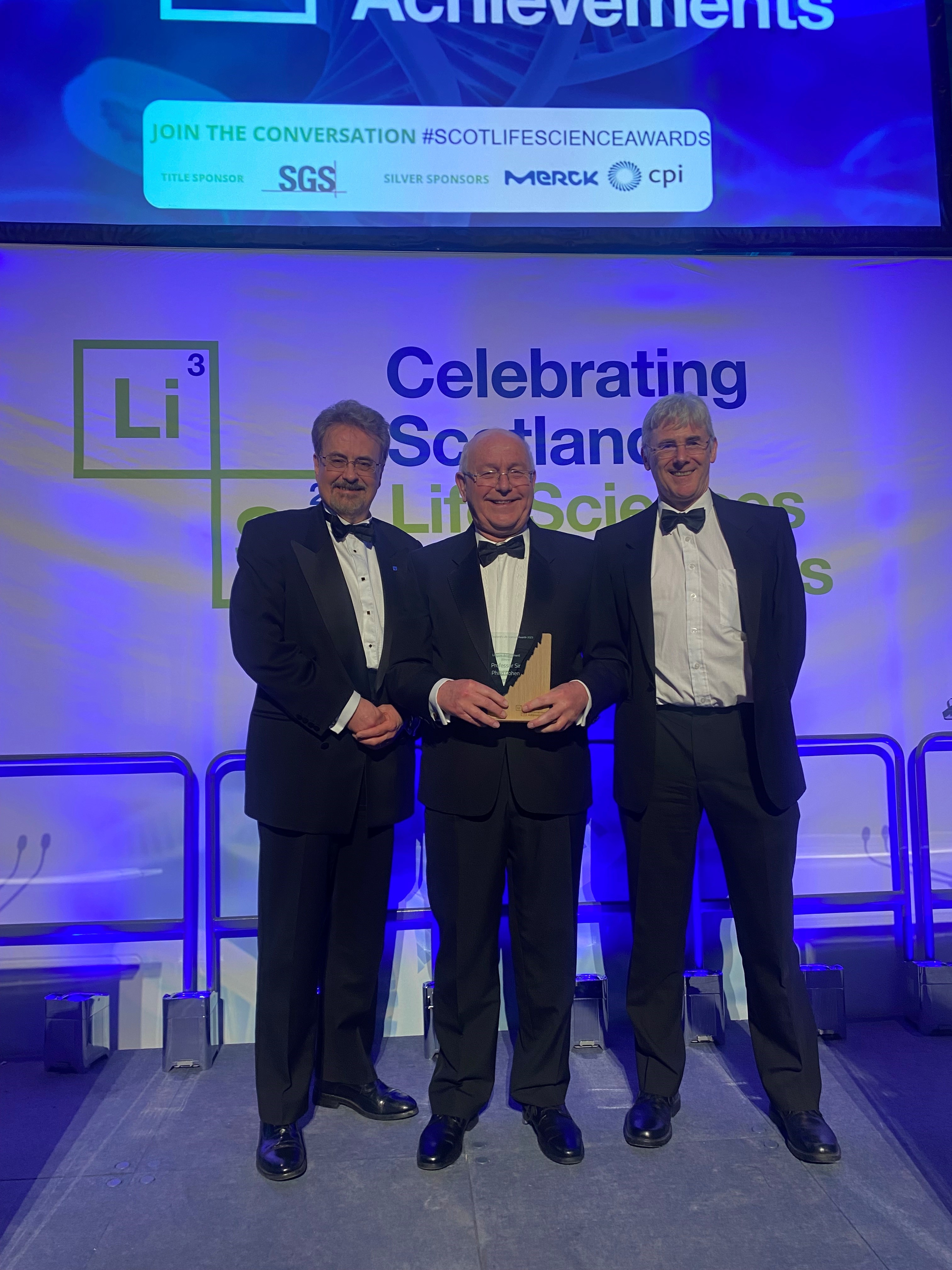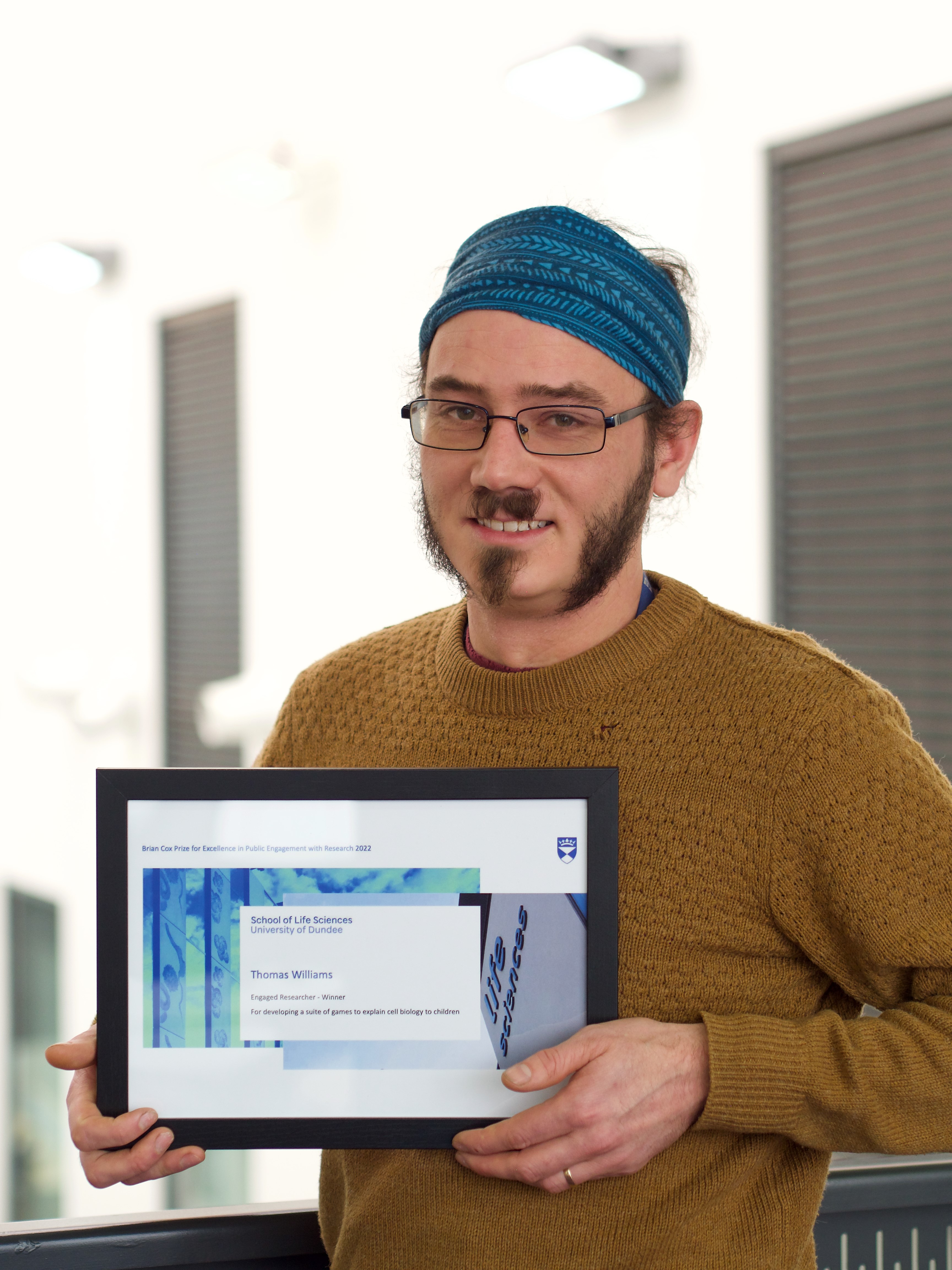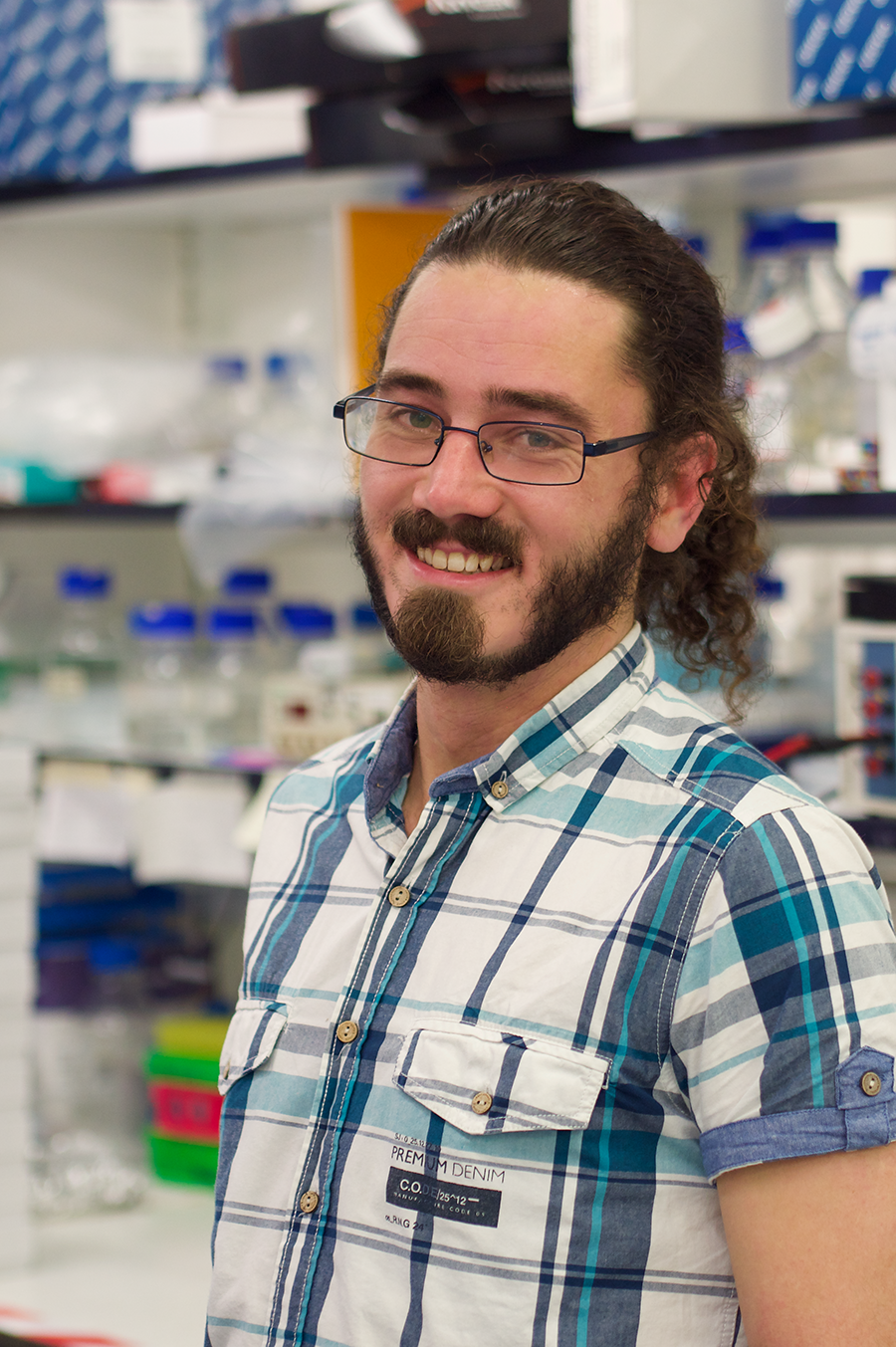Eukaryotic cells make a single copy of their chromosomes before cell division, to ensure that the genetic blueprint can be passed on intact from one generation to the next. The molecular machinery that copies chromosomes is called the replisome and is built around an 11-subunit DNA helicase called CMG (CDC45-MCM-GINS), which unwinds the DNA duplex to allow DNA polymerases to copy the genome.
…moreNews
Targeted protein degradation (TPD), induced by enforcing proximity in cells between a target protein and an enzyme called E3 ubiquitin ligase using small molecules has become an important drug discovery approach for targeting previously undruggable disease-causing proteins.
…more
We are delighted to learn that Dr Kirby Swatek from the Medical Research Council Protein Phosphorylation and Ubiquitylation Unit (MRC-PPU) at the University of Dundee has been awarded a highly prestigious Lister Research Prize Fellowship.
…more
After receiving the Lifetime Achievement Award from Scotland’s Life Science Industry in March 2023 (Previous article), Philip Cohen has now received The Herald Higher Education Lifetime Achievement Award.
…moreMiratul Muqit, Wellcome Trust Senior Clinical Fellow and Honorary Consultant Neurologist at the MRC Protein Phosphorylation and Ubiquitylation Unit of the University of Dundee is among 59 medical researchers who have been elected to join the Academy of Medical Sciences one of the UK’s most prestigious medical academies.
…more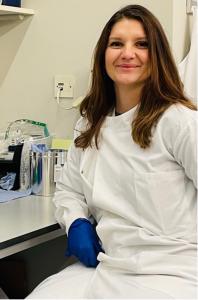
We are delighted to announce that Dr Ralitsa Madsen has opened an Independent Investigator laboratory within the MRC PPU.
…moreEx-MRC PPU Postdocs Ana Belén Pérez Oliva (Postdoc in the Alessi lab 2011-2015), Christophe Lachaud (Postdoc in Rouse lab 2011-2016) and Jenny van Asbeck-van der Wijst (Postdoc in the Alessi lab 2011-2013) have been awarded a €2.7 million EU collaborative grant to develop a new RNA-based therapy for patients suffering from congenital anemia.
…moreSir Philip Cohen received a Lifetime Achievement Award at Scotland’s Life Sciences annual Dinner and Awards Ceremony on the evening of March 16th 2023.
…moreThomas Williams, a PDRA in the Rousseau group of the MRC PPU has been awarded the Brian Cox for excellence in public engagement engaged researcher award. This award is awarded to a researcher who has made an outstanding contribution in communicating science performed within the University of Dundee School of Life Sciences.
…more
Thomas Williams from the Rousseau group of the MRC PPU have been awarded the University of Dundee Molecular and Cellular Biology prize for unravelling a mechanism underpinning increased translation of proteasome assembly chaperones followed stress.
…more

